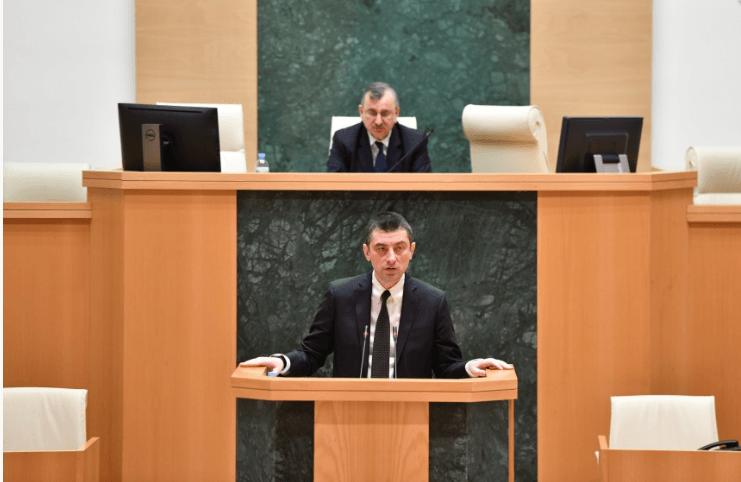Bidzina Ivanishvili, force and purse behind Georgia’s ruling Georgian Dream party had an emotionally charged summer. In June, he got an unexpected scare, as thousands have hit the streets, triggered by the Russian MP taking the Georgian Parliament Speaker’s chair. Caught off balance, the executive ordered a disproportional police crackdown, while the prosecution hastily concocted a story of a coup. The party had to jettison the Parliament Speaker, one of its more aggressive frontline figures.
But one does not survive Russia’s 1990s by sentimentally bowing to the crowds. As protests rambled on, demanding resignation of the Interior Minister, Giorgi Gakharia, Ivanishvili recoiled, but only to strike back.
In summer, he delivered dramatic blows to his two core enemies. As ECHR removed legal protection, Rustavi 2, viciously critical to Ivanishvili has ceased existence in its previous incarnation. Mamuka Khazaradze, TBC Bank’s chair and the chief oligarch’s prime business enemy, was dragged through prosecution on trumped up money laundering charges, forcing the prime U.S. stakeholder in Anaklia Development Consortium to quit.
In the meantime, the High Council of Justice has stacked the deck at the Supreme Court with ruling party loyalists.
Buoyed by victory, Ivanishvili is facing down the opponents. He has now nominated Gakharia as the Prime Minister, elevated his another henchmen, former PM Irakli Gharibashvili to Defense Minister and posting Giorgi Gomelauri, his former bodyguard, at the Interior.
The signal is clear, the baby-faced front-men, like the outgoing Prime Minister Mamuka Bakhtadze are out, and the war cabinet is in. The new nominations announce that Georgian Dream has launched its 2020 parliamentary election campaign ahead of its adversaries, and that it will be divisive, bitter and dirty.
But the dramatic decision carries within itself the seeds of hubris, and Georgia’s foreign friends must take note.
The protests might have subsided during the summer lull, but they are likely to be now re-ignited by Ivanishvili’s demonstrative affront of elevating Gakharia instead of chastising him. More violence in response to such protests might push Georgia over the outer bound of democracy – through the barrier that is already wafer-thin.
Nativist and hate groups have all been at work in late spring and summer facing down Tbilisi pride and the anti-government protesters. They are likely to ally willingly and closely with anti-liberal push, shall it become mainstreamed in the ruling party rhetoric and transform into action.
Hot and perilous autumn is ahead.

